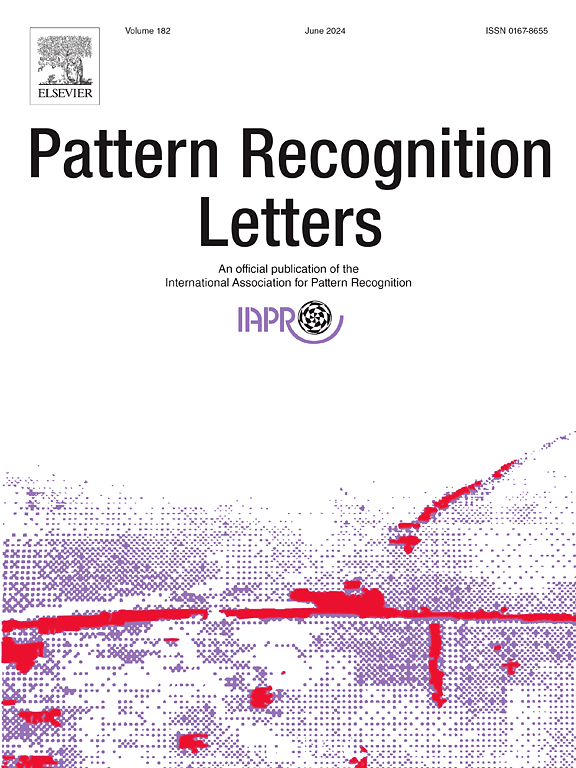Conditional Stable Diffusion for Distortion Correction and Image Rectification
IF 3.9
3区 计算机科学
Q2 COMPUTER SCIENCE, ARTIFICIAL INTELLIGENCE
引用次数: 0
Abstract
Image rectification and distortion correction are fundamental tasks in the field of image processing and computer vision, with it is applications ranging from document processing to medical imaging. This study presents a novel Conditional Stable Diffusion framework designed to tackle the challenges posed by diverse types of image distortions. Unlike existing traditional methods, our approach introduces an adaptive diffusion process that customizes its behavior based on the specific characteristics of the input image. By introducing controlled noise in a bidirectional manner, our model learns to interpret and refine various distortion patterns and progressively refines the image into a more uniform distribution. Furthermore, to complement the diffusion process, we incorporate a Guided Rectification Network (GRN) that generates reliable conditions from the input image, effectively reducing ambiguity between the distorted and target outputs. The integration of stable diffusion is justified by its versatility in handling diverse types and degrees of distortion. Our proposed method effectively handles a wide range of distortions—including projective and complex lens-based distortions such as barrel and pincushion—by dynamically adapting to each unique distortion type. Whether stemming from lens abnormalities, perspective discrepancies, or other factors, our proposed stable diffusion-based method consistently adapts to the specific characteristics of the distortion, yielding superior outcomes. Experimental results across benchmark datasets demonstrate that our method consistently outperforms existing state-of-the-art approaches. Additionally, we highlight that our work is the first instance of the diffusion method being used to simultaneously address various distortion types (barrel, pincushion, lens, etc.) for multi-distortion image rectification. This Conditional Stable Diffusion framework thus offers a promising advancement for robust and versatile image distortion correction.
畸变校正和图像校正的条件稳定扩散
图像校正和失真校正是图像处理和计算机视觉领域的基本任务,其应用范围从文档处理到医学成像。本研究提出了一种新的条件稳定扩散框架,旨在解决各种类型的图像失真所带来的挑战。与现有的传统方法不同,我们的方法引入了一个自适应扩散过程,该过程根据输入图像的特定特征自定义其行为。通过以双向方式引入受控噪声,我们的模型学习解释和细化各种失真模式,并逐步将图像细化为更均匀的分布。此外,为了补充扩散过程,我们结合了一个引导整流网络(GRN),该网络从输入图像中生成可靠的条件,有效地减少了失真和目标输出之间的歧义。稳定扩散的集成是合理的,因为它在处理不同类型和程度的失真方面具有通用性。我们提出的方法通过动态适应每种独特的畸变类型,有效地处理各种畸变,包括投影和复杂的基于透镜的畸变,如桶形和针垫形。无论是由晶状体异常、视角差异还是其他因素引起的,我们提出的基于扩散的稳定方法都能始终适应畸变的特定特征,从而产生更好的结果。跨基准数据集的实验结果表明,我们的方法始终优于现有的最先进的方法。此外,我们强调,我们的工作是第一个使用扩散方法同时处理各种畸变类型(枪管,针垫,透镜等)以进行多重畸变图像校正的实例。因此,这种条件稳定扩散框架为鲁棒和通用图像失真校正提供了有希望的进展。
本文章由计算机程序翻译,如有差异,请以英文原文为准。
求助全文
约1分钟内获得全文
求助全文
来源期刊

Pattern Recognition Letters
工程技术-计算机:人工智能
CiteScore
12.40
自引率
5.90%
发文量
287
审稿时长
9.1 months
期刊介绍:
Pattern Recognition Letters aims at rapid publication of concise articles of a broad interest in pattern recognition.
Subject areas include all the current fields of interest represented by the Technical Committees of the International Association of Pattern Recognition, and other developing themes involving learning and recognition.
 求助内容:
求助内容: 应助结果提醒方式:
应助结果提醒方式:


